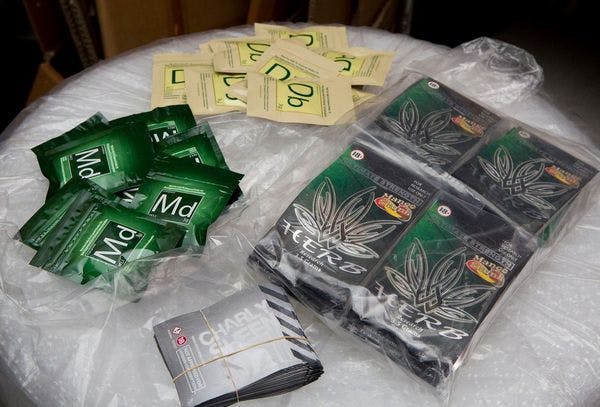Le mythe d’une solution finale dans la guerre contre les stupéfiants légaux
Les tentatives de contrôle des drogues au cours de ces 100 dernières années nous ont appris la futilité des mesures pénales et répressives. Pour en savoir plus, en anglais, veuillez lire les informations ci-dessous.
Abonnez-vous à l'Alerte mensuelle de l'IDPC pour recevoir des informations relatives à la politique des drogues.
"Legal highs: could this be the end of the road?" – asks Joe Shuts in his article, published in The Telegraph. He refers to the new blanket ban the UK government has recently introduced to stop the flood of so-called legal highs, new psychoactive substances which have been spreading all over Europe since 2009. Should other governments follow the British example and adopt similar bans? The answer has to be a resounding "No".
Cheap and legal synthetic substitutes for currently illegal drugs, with similar psychopharmacological effects but slightly different chemical structure, are now available in great quantity and variety in Europe. Most of these substances are produced in China and India, purchased and transported by traffickers, for distribution in smartshops or online shops. They are legal – until the government outlaws them. Most European governments, including the UK, have created legal mechanisms aimed at bringing these substances under control as quickly as possible. Countless new substances have been banned over the course of the past few years, but the market has not diminished, with the banned drugs constantly replaced by new versions. The UK Parliament has now approved a bill which effectively bans everything with the potential to have a psychoactive effect, with some exemptions, for example alcohol and tobacco.
This law may raise high hopes in those who desperately seek an end to the spread of legal highs. But it is a false hope. If we have learned anything from the century-long history of attempted drug control, it is the futility of having high expectations when it comes to repressive legal measures. When federal alcohol prohibition was introduced in 1919, Reverend Billy Sunday exclaimed, "The reign of tears is over. The slums will soon be a memory". What soon became a memory, in actual fact, was prohibition itself.
Click here to read the full article.
Keep up-to-date with drug policy developments by subscribing to the IDPC Monthly Alert.
